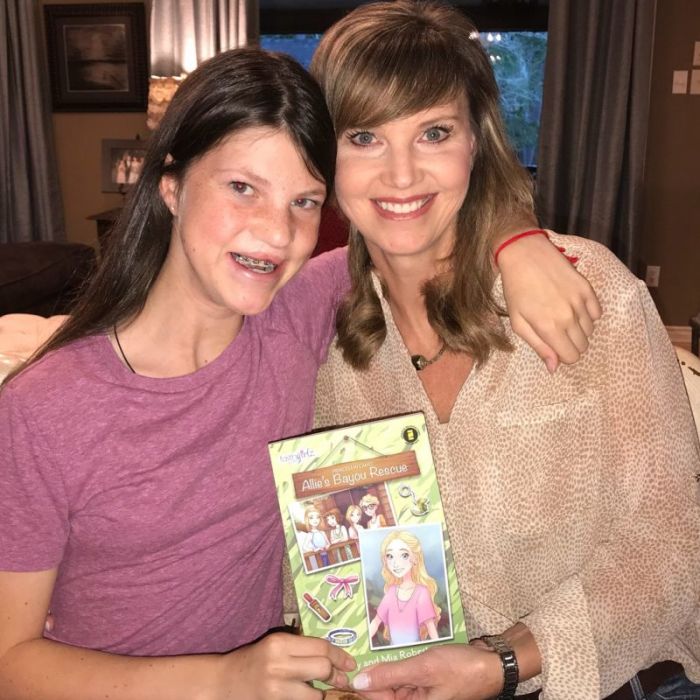Duck Dynasty's Missy Robertson on Monitoring Kid's Media Use: 'They Don't Have a Right to Privacy'

"Duck Dynasty" star Missy Robertson shared tips for raising godly children and explained why she believes kids shouldn't have a "right to privacy" in today's technology-saturated world.
"Kids today are under a tremendous amount of pressure," Robertson told The Christian Post in an exclusive interview. "A lot of that pressure comes from social media. I think that is the main problem; you're comparing yourself to all the perfect people. Of course, they've been through 45 filters and you're comparing yourself to that unrealistic body image and flawless makeup. We're seeing a lot of negative effects from that."
"Kids are getting phones younger and younger, and I'm seeing toddlers throwing fits when they can't get on their parent's phones," she continued "Parents are trapped, they don't know how to take it away. We're starting them out young, and the scary thing is, we don't even know what it'll look like ten years from now. As a mother, I would encourage young parents to remember that they're in control and they need to stand up, because parents around them aren't going to. It's going to get harder and harder."
Robertson, the daughter of a pastor, and her husband Jase have three children together; two adult sons, Reed and Cole, and a 13-year-old daughter, Mia. She told CP that in their house, there is "no aspect of privacy" when it comes to her children's technology use.
"There's this misconception out there that children deserve privacy," she said. "That's not true. They don't have a right to privacy. They'll have it when they grow up and move out. We have two boys that just left, but when they were in our house, they didn't have the right to privacy. That's why you're the parent; not because you want to lord over them, but to protect them and you want what's best for them, guiding them in situations they find themselves in."

Robertson pointed out that, with constant access to the internet and unlimited connectivity to peers, teen culture looks vastly different than it did a decade ago. The percentage of teens who had smartphones jumped from 37 percent in 2012 to 73 percent in 2015 to 89 percent at the end of 2016, according to data from the Pew Research Center and the Associated Press-NORC Center for Public Affairs Research. Overall, 50 percent of all teens said they felt addicted to their phones, according to a report by CommonSense Media.
The Blessed, Blessed, Blessed author said that while her children are still in the house, she and her husband have 24/7 access to their phones, computers, and any other technology.
"We can walk in to their rooms at any time and ask for anything we want or anything we're suspicious of," she said. "They might not like it, but they never balked at it because it's just what happened in our house. Anything we thought needed adjusting in terms of attitude and behaviour, that's our right as parents. We're losing that in culture, so we need to take control because we want our kids in Heaven. It's not about this earth, it's about preparing them for eternity."
Because children get their "first glimpse of God through mom and dad," Robertson advised parents to keep lines of communication open by listening attentively and setting boundaries while remaining patient.
"If we're impatient and screamers and if we react more than we act — and by that I mean we don't really plan ahead and aren't purposeful in advance, we just let life happen — it's gonna be bad," she said. "That establishes their view of God, and that's not how He is."
While messing up is inevitable, Robertson advised parents to own up to their mistakes and apologize when they've done something wrong.
"For some, asking children for forgiveness is a sign of weakness, but I disagree," she said. "If we can come clean with our kids and say, 'I overreacted, I messed up, I'm sorry,' that sets a great example. They understand that we're human and we rely on God everyday."
"It boils down to communication and understanding that God came in human form as Jesus Christ our Savior for every single one of us," she concluded. "Admitting to my kids when I mess up has established a strong, trusting relationship. It's important to stay real and authentic."




























